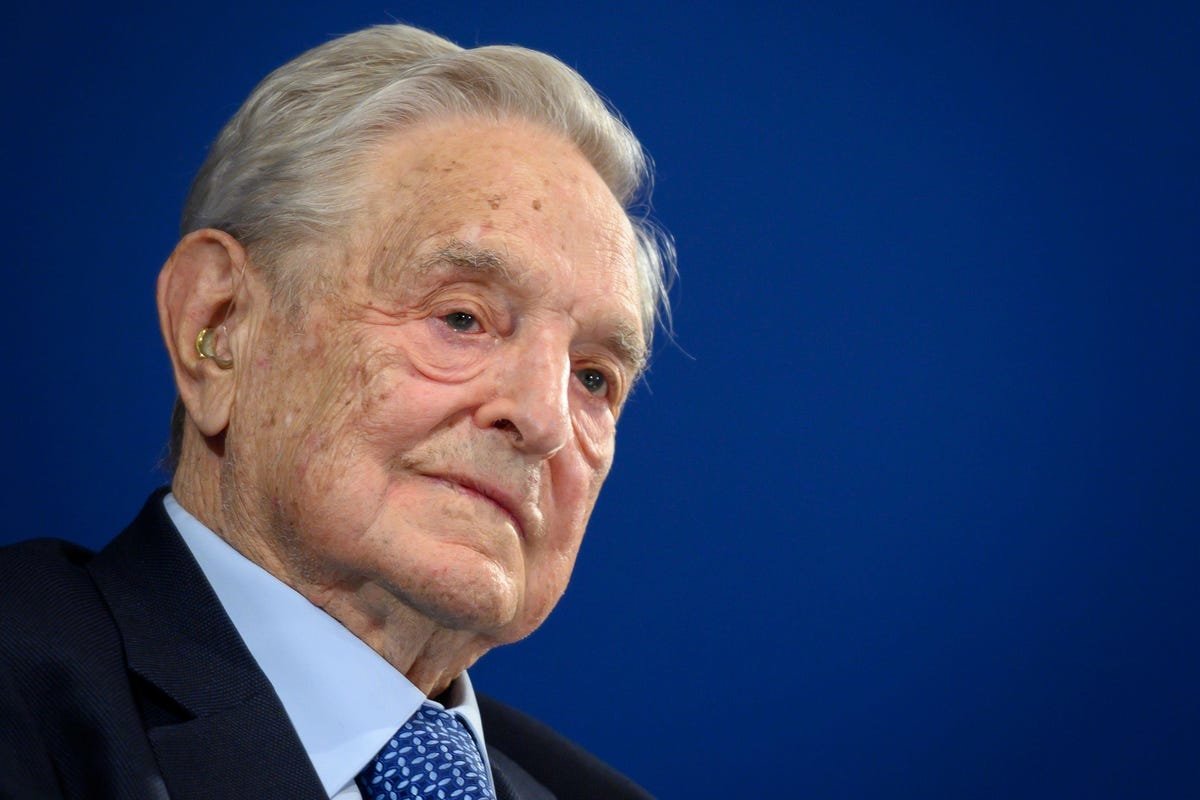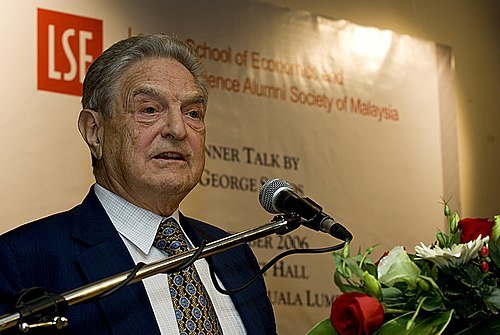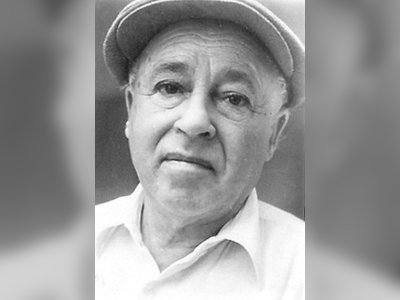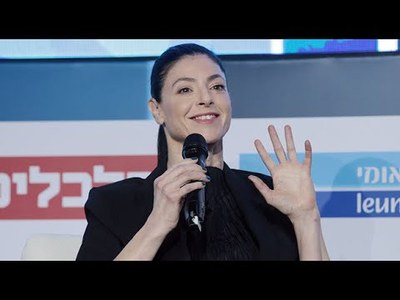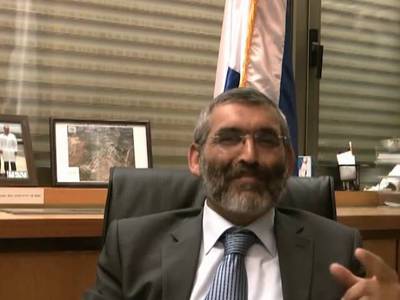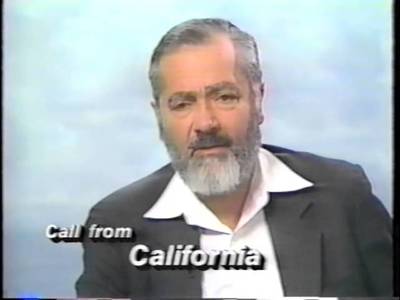מורשת גדולי האומה
בזכותם קיים
beta
George Soros
Is a Jewish-Hungarian-American billionaire philanthropist who has donated substantial sums to human rights organizations, institutions, and the promotion of political activities worldwide. He is widely known for his liberal and left-leaning positions. In 2018, Forbes estimated his net worth to be around $8 billion.
Early Life
Born as György Schwartz in Budapest, Hungary, to a secular Jewish family, Soros' parents were not comfortable with their Jewish roots, and Soros once stated that he grew up in a "anti-Semitic Jewish household." His father, Tivadar, was a lawyer by profession who served in the military during World War I and escaped captivity in Russia, returning to his family in Budapest. His mother, Erzsébet, came from a successful silk merchant family. Tivadar was also an Esperanto enthusiast and taught his son the language. In 1936, Soros' father changed the family name from Schwartz (meaning "black" in German) to Soros (meaning "to soar" or "to prosper" in Esperanto and "next in line" in Hungarian) to protect against the growing anti-Semitism in Hungary and Europe.
In March 1944, the Nazis occupied Hungary, and Jewish children were expelled from schools and forced to register with the Judenrat. Soros recounted that he received a task from the Judenrat to deliver messages to fellow Jews. He showed these messages to his father, who recognized them as deportation orders for Jewish lawyers and instructed Soros to warn the recipients. Soros' family obtained false Christian identity documents, allowing them to survive the Holocaust. Soros, posing as the godson of an agriculture ministry official responsible for confiscating Jewish property, assisted in the inventorying of confiscated Jewish belongings. In 1998, during an interview with Steve Kroft on the TV program "60 Minutes," Soros stated that he had no regrets about his actions during that time, as he believed someone else would have carried out the tasks if he had not.
Soros' father also aided in the rescue of other Jews, and Soros later wrote that 1944 was the happiest year of his life because he witnessed his father's courage. The family survived the siege of Budapest in 1945.
Education and Early Career
At the age of 17, Soros emigrated to England and attended the London School of Economics, where he earned both a bachelor's and a master's degree in philosophy in 1954. He was heavily influenced by philosopher Karl Popper, one of his mentors, and the concept of the open society that Popper advocated for. After completing his studies, Soros began working as a clerk at Singer & Friedlander, a London-based merchant bank, before moving on to its arbitrage department. At the recommendation of a friend, he relocated to New York in 1956 and worked for F.M. Mayer, a brokerage firm, specializing in European stocks that garnered interest in the United States, laying the foundation for the European Union.
In 1959, Soros joined the investment bank Wertheim & Co., working as an analyst for European securities.
Economic Activities
Soros made his fortune through currency trading. He would buy currencies that he believed were undervalued and sell those he thought were overvalued. His assessments were often accurate and well-founded. He gained significant public attention in 1992 when he shorted the British pound, betting against it, and earned a substantial profit when the pound's value plummeted. This event, known as Black Wednesday, led to the United Kingdom's withdrawal from the European Exchange Rate Mechanism, a precursor to the Euro.
As of 2013, Soros was estimated to have a net worth of $19.2 billion, making him one of the 50 richest people in the world. Forbes ranked him 35th on its list of the world's billionaires. Over the past decades, Soros has increasingly donated billions of dollars to charity and political organizations. Soros serves as the chairman of the Soros Fund Management and the chairman of the Open Society Institute. He is also a former board member of the Council on Foreign Relations. In 2009, after the global economic crisis, he established the Institute for New Economic Thinking.
Business Ventures
In 1970, Soros founded the Soros Fund Management as a subsidiary of Arnhold and S. Bleichroeder, an investment bank, where he served as vice president alongside his business partner, Jim Rogers. Before that, they managed the Double Eagle Fund on behalf of the bank. Soros left the management of the fund in 1973 to establish his own Soros Fund with $12 million raised from investors. Initially, it was named the Soros Fund, but it later became the Quantum Group of Funds. Rogers left the fund in 1980. During those seven years, the fund achieved a return of 4,200%, compared to a 47% increase in the S&P 500 Index. In 2011, Soros announced that the fund would become a family office and cease external investments, returning approximately $1 billion to investors. With an average annual return of over 20% since its inception, the Quantum Fund is one of the most successful hedge funds in history.
On September 16, 1992, a day known as "Black Wednesday," Soros' fund executed a sale of short sterling positions worth more than $10 billion. Soros took advantage of the British government's reluctance to increase interest rates to support the pound or allow its devaluation in line with other European currencies. When the UK eventually withdrew from the European Exchange Rate Mechanism, the pound experienced extreme devaluation, and Soros famously profited an estimated $1.1 billion from the event, earning him the moniker "The Man Who Broke the Bank of England." In 1997, the British Treasury estimated the cost of Black Wednesday at £3.4 billion for the UK government.
In October 1992, during the Asian financial crisis, Malaysian Prime Minister Mahathir Mohamad accused Soros of using his wealth to punish the Association of Southeast Asian Nations (ASEAN) for admitting Myanmar as a member. Mahathir made references to Soros' Jewish background, suggesting that Soros was part of a Jewish conspiracy. Nine years later, in 2006, Mahathir apologized for his remarks.
In his 1998 book, "The Crisis of Global Capitalism: Open Society Endangered," Soros explained his role in the Asian financial crisis:
"The total market capitalization of ASEAN [in U.S. dollars] fell by 31.7% in 1998 and 9.2% in 1997. Our quantum approach to investing suffered a similar fate."
Predictions
In his 2008 book, "The New Paradigm for Financial Markets," Soros described a "super-bubble" that had been inflating for 25 years and was ready to burst. This was the third in a series of books in which he successfully predicted economic crises. He explained:
Soros attributed his success to his ability to recognize when his predictions were wrong:
In February 2009, George Soros stated that the global financial system had effectively disintegrated and that there was no chance of a quick solution to the crisis. He noted, "We witnessed the collapse of the financial system... The bottom hasn't been reached yet."
- ג'ורג' סורוס – ויקיפדיהhe.wikipedia.org
